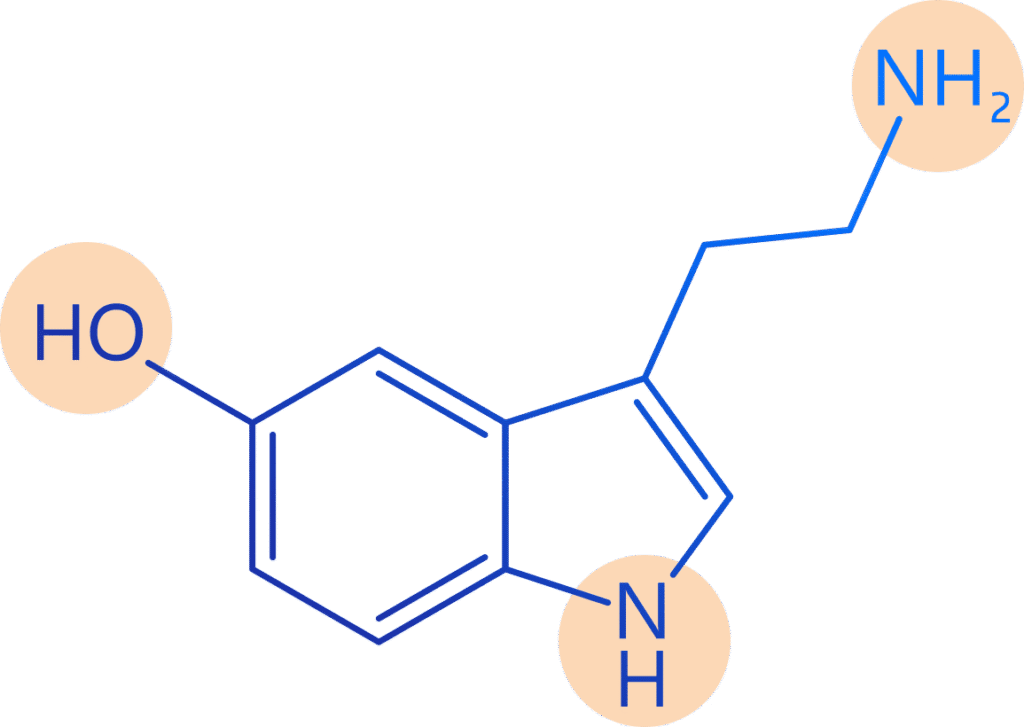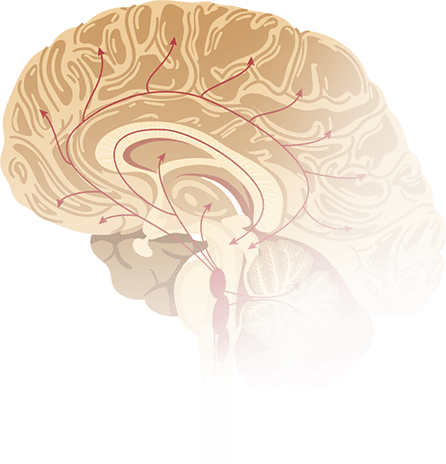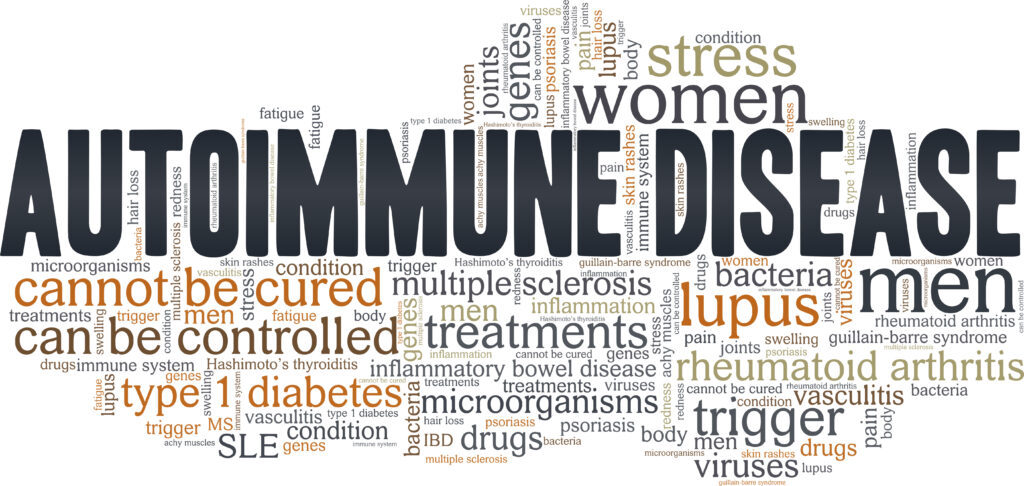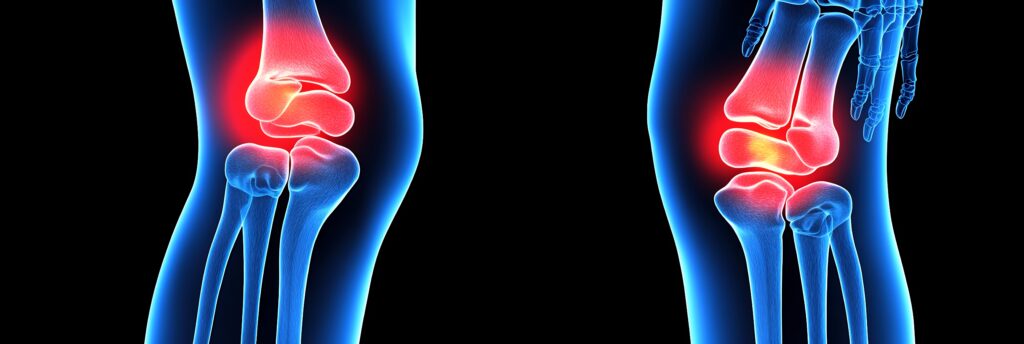
WELCOME TO THE WEBSITE
SerotoninDeficit
Here, you will find valuable information and everything worth knowing about serotonin – as well as how to stay happy, mentally fit and healthy into old age, thanks to this important messenger substance.
Enjoy reading!

Serotonin is one of the most important messenger substances in the human body.
As the so-called “happiness hormone,” it has significant influence on mental well-being and balance. However, this is only one facet of this versatile neurotransmitter and hormone.
Serotonin also regulates sleep – wakefulness, as well as cognition, memory and pain perception.
It influences gastrointestinal activity, controls the tension in the vessels and thus plays an important role regarding a healthy cardiovascular system.
Basics of Serotonin
Do you long for more serenity, emotional balance and the ability to support your health, no matter what your age?
Serotonin, a multipurpose hormone, can help you to realize these wishes.
What is Serotonin?
Serotonin is one of the most important messenger substances in the human body − no wonder, since the so-called “happiness hormone” significantly influences mental well-being and balance, thus exerting a positive effect on mood. However, this is only one facet of this versatile neurotransmitter and hormone.
Serotonin also influences gastrointestinal activity and food metabolism, otherwise referred to as the balance of energy in the body. Furthermore, serotonin controls the elasticity of the blood vessels, therefore playing an important role in maintaining a healthy cardiovascular system. Additionally, serotonin is essential for sexual health. At the same time, serotonin regulates sleep-wake behavior, as well as cognition and memory. Hence, it is an extremely important hormone for both mental and physical health.
How Serotonin
is Produced
Serotonin is produced in several locations in the human body: centrally, in the brain (i.e. the central nervous system, or CNS), as well as in peripheral organs like the gastrointestinal tract, where the largest amount of serotonin in the body — around 95 percent — is found and absorbed by the blood.
In simple terms, serotonin production begins when 5-hydroxytryptophan (5-HTP) is initially formed from the amino acid tryptophan. Two very similar enzymes are responsible for this process: tryptophan hydroxylase 1 (TPH1), which is responsible for this conversion in the peripheral organs, and tryptophan hydroxylase 2 (TPH2), an enzyme responsible for that which occurs in the brain. In the next step, 5-HTP is finally metabolized to 5-hydroxytryptamine, or serotonin, a process that takes place predominantly during the day or in the morning. At night, serotonin can be further converted into melatonin, the sleep hormone.
Tryptophan
Tryptophan, also known as L-tryptophan, can be converted into serotonin, as well as other substances such as kynurenine. Which path of conversion it takes depends on the situation at hand as well as the current levels of tryptophan in the blood. At the same time, tryptophan uptake can be negatively affected by other amino acids that are ingested, for example, through food.
Chronic stress and inflammation are also tryptophan thieves. The two key enzymes TPH1 and TPH2, in particular, are extremely sensitive to stress and the increased cortisol released in the process. All of these factors can lead to an increase in the conversion of tryptophan into kynurenine, which ultimately negatively affects the release of serotonin.
During youth, the need for tryptophan can be well covered by the diet. For example, walnuts, dairy products and eggs contain particularly high amounts of tryptophan, as do cocoa, bananas, pineapple and soybeans. With increasing age, however, it is no longer possible to correct a tryptophan deficiency or meet increased tryptophan requirements through the diet. In these cases, targeted supplementation is necessary.
5-Hydroxytryptophan (5-HTP)
Unlike tryptophan, 5-hydroxytryptophan (5-HTP) is always metabolized into serotonin because it cannot be converted into any other substance. It is therefore significantly less prone to disruption, making it an ideal vehicle for increasing serotonin levels as quickly as possible. The conversion of 5-HTP to serotonin occurs in the peripheral organs as well as in the brain.
Another property of 5-HTP: It is absorbed independently of food or any other amino acids. However, in addition to estrogens, it also needs sufficient B vitamins, especially vitamins B3 and B6, to be converted into serotonin. Vitamin B3 is found primarily in peas, poultry, beef, pork and sardines. Wheat germ, wheat bran, poultry, egg yolk and fish are, in turn, important sources of vitamin B6.

Behavioral effects:
Mood
Perception
Memory
Anger
Aggression
Fear
Stress responses
Appetite
Addiction
Sexuality
Central serotonergic drugs:
SSRIs
Tricyclic antidepressants
MAOIs
Other antidepressants
Buspirone
Atypical antipsychotics
Triptans
5-HT
3 receptor antagonists
(e.g. ondansetron)
Fenfluramine
Ergotamine/methysergide
Hallucinogens
Other CNS effects:
Motor control
Cerebellar regulation
Sleep/circadian rhythms
CNS vascular tone
Emesis
Respiratory drive
Body temperature
Descending regulation of
multiple organ systems
It’s important to know that serotonin itself cannot be obtained directly through diet or supplementation. An increase in levels of the “happiness hormone” can only occur via its precursors tryptophan and/or 5-hydroxytryptophan (5-HTP).
Causes
Important Influencing Factors of Serotonin Deficiency
In addition to the natural decline of serotonin as we age and as the activity of the enzymes TPH1 and TPH2 steadily decrease, many other influencing factors can have a negative effect on serotonin levels. The most important ones are as follows:
LEARN MORE ABOUT THE CAUSESSymptoms
and Disorders
Symptoms of a Serotonin Deficiency
The extreme importance of serotonin for the human body becomes very clear when one examines what a deficiency of this important hormone can trigger. A serotonin deficiency is very often responsible for sleep disorders, depression, listlessness, and fatigue or severe exhaustion. Even many intestinal problems are associated with a lack of serotonin.
LEARN MORE ABOUT SYMPTOMS AND DISORDERSTherapies
and Solutions
Tryptophan Regulates Metabolism
The serotonin precursor tryptophan also influences metabolism and nutrient uptake. Studies have shown that the inhibition of tryptophan hydroxylase 1(TPH1), leads to increased uptake of tryptophan in the brain and could thus represent a therapeutic approach for treating obesity and type 2 diabetes.
LEARN MORE ABOUT THERAPIES AND SOLUTIONS
Latest News and Articles
Here, you will find valuable information and everything worth knowing about serotonin – as well as how to stay happy, mentally fit and healthy into old age, thanks to this important messenger substance.
Enjoy reading!
The Bi-Directional Interplay Between Serotonin and Autoimmune Diseases
Serotonin is commonly known as the “feel-good” neurotransmitter, as it is primarily associated with mood…
How Serotonin and Inflammation Contribute to Chronic Disease
Although it is most widely known for its role as a neurotransmitter that helps to…
Harnessing the Power of Tryptophan for Sleep
Sleep is essential for overall well-being, as sleep quality and quantity influences everything from cognitive…



